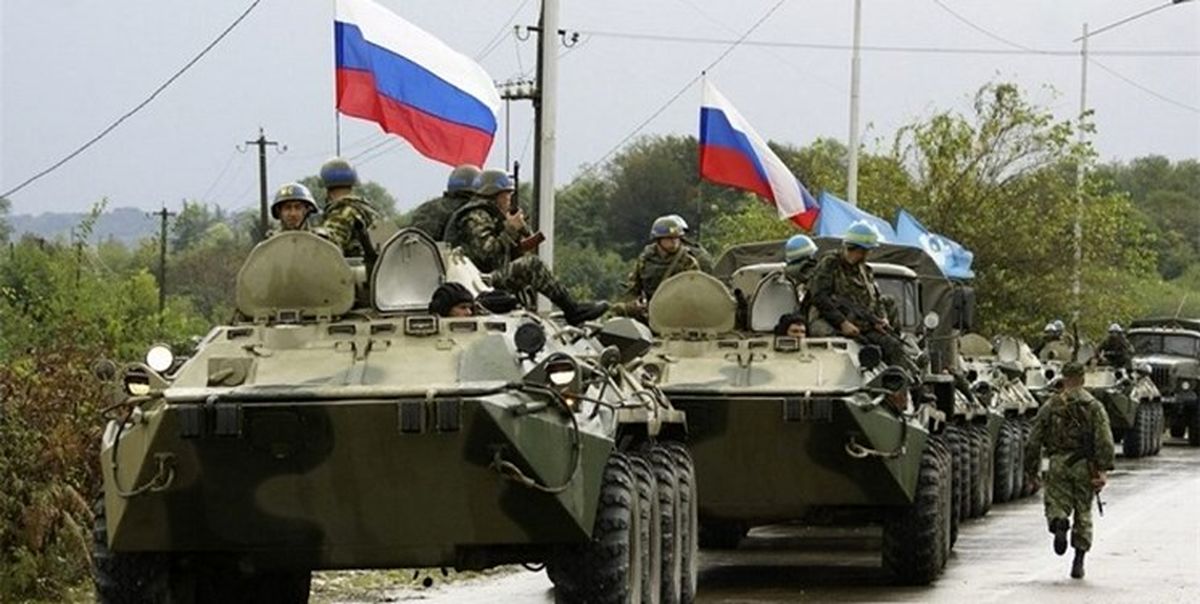In an interview with the website of the Strategic Council on Foreign Relations, Hassan Beheshtipour, referred to the recent counter-attacks of Ukraine and the remarks of the Russian President that Moscow will not change its main goal, which is the complete liberation of the Donbas region, adding: Ukraine in the past 12 centuries had a traditional and comprehensive alliance with Russia and together had about 10 million people killed in the World War II. The two countries have common geopolitical and geostrategic interests and historical, cultural and racial connections. Now, in fact, by attacking Ukraine, Moscow lost the larger objective, Ukraine as a buffer country with NATO, and will probably suffice the smaller goal of annexing Donbas.
He pointed out the importance of persuading Russian public opinion regarding the war in Ukraine in view of holding presidential elections in 2024 in that country and added: Russia’s attack on Ukraine was a strategic mistake of Mr. Putin’s 22-year old rule. He could first try the international mechanisms or hold conferences to justify the public opinion to resort to military action and make efforts to explain the threats he felt. Russia itself criticized the United States for attacking Iraq before using international mechanisms!
Beheshtipour, stating that Russia without Ukraine and Ukraine without Russia will have many problems, emphasized: This is a success for the West, which created a distance between Russia and Ukraine and cut ties. At the beginning of the war, Zelensky announced that Ukraine’s membership in NATO is negotiable under the condition of a ceasefire and Russia’s withdrawal, but now he insists that he is looking for full membership in NATO.
The international affairs analyst said: Now Ukraine is practically divided and its society is polarized. Some 6 to 12 million people have become migrants and homeless. Such costs for Ukraine are far more than the costs of the war. It seems that this war will continue and the situation of both sides will definitely become worse and more complicated in the coming months.
Describing the situation on the battlefield in Ukraine, Beheshtipour stated that it is desirable for Russia to reach the Crimean Peninsula by land and take the Donbas region to Odessa to be able to gain access to Crimea by occupying the coastal strip, and added: Due to the outbreak of war in Ukraine, it affects all countries, and the interests of that war were only directed towards the US and Britain.
He said: Regardless of the outcome, both Russia and Ukraine are the main losers of the war. Although the sanctions against Russia have had the opposite result so far, the country’s economic situation may go into crisis in the medium and long term. Of course, Europe experienced a crisis with the disruption in energy and food security, and inflation reached unprecedented levels in the past 50 years. German, French and Italian companies suffered huge losses and will continue to suffer more with the increase in prices.
Beheshtipour pointed to the military and financial aid of the West to Ukraine and continued: In the past days, Russian forces have retreated from the important small cities of eastern Ukraine, simultaneously with the further advance of Ukrainian forces in a series of counter-attacks. The Ministry of Defense of Russia also announced that they have withdrawn from the cities of Izium and Balaklia in the Kharkiv Province of Ukraine and directed their forces to Donetsk to achieve the targets of their military operations. The president of Ukraine also announced that since the beginning of September, they have succeeded in liberating about 6,000 square kilometers of Ukrainian territory in the east and the south and continue to advance.
This analyst of international affairs stated: Although the French news agency reported the escape of Russian soldiers and leaving behind military equipment and tools, however it stated that Ukraine’s progress was still not significant. However, under such situation, Russia’s withdrawal from Kharkiv was very important and showed that they have received a strong military blow.
At the same time, Beheshtipour referred to Putin’s statement that Russia’s attack on Ukraine was a necessary measure to prevent the West’s plan to divide Russia, adding: Russia has a high military power and can still launch extensive military operations, but the important thing is that Being killed on both sides is only in the interest of the United States, which is taking advantage of Ukraine’s distance from Russia, and this is a prelude to intervention in Russia. Under such situation, the role that Russia considered for the Donbas to be a buffer with the West has been questioned and is faced with many ifs and buts, and in case of victory, the threat that Russia feels against the West will continue and the West will continue its conspiracies.
Saying that Ukraine is selling its independence in exchange for foreign aid in the war against Russia so that it can resist Russia with their help, he reminded: It is not clear how the Western support for Kiev will be in the cold weather conditions, while Western countries have shown that they are pursuing their interests in practice, but Ukraine still hopes to solve this issue through military means.
The expert on international affairs emphasized: The US and Western countries, as one of the main parties of the war, continue to send all kinds of weapons and military equipment to Ukraine in order to confront the Russian army. The US seeks to make Russia much weaker, and with the continuation of the war in the coming year, that country will become even weaker. On the other hand, Europe’s energy and food security as well as military security are under serious pressure and threat, and it is in the interest of all involved parties to move towards ending this war as soon as possible.










0 Comments